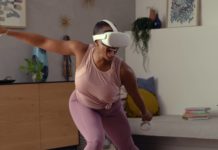Habits are a fickle beast. We try so hard to create good habits like flossing, going to the gym, and getting up earlier and can only stick with them for a few weeks before the inevitable relapse. Our dentist stays mad, our flab stays flabby, and our eyes stay glued shut when the alarm goes off.
But checking Facebook every 17 minutes? Now that habit sticks like bubble gum in your mustache no matter how far from your home screen you place the app.

Starting and sticking to a gym routine is one of those habits that most people just can’t seem to consistently perform. Every year the New Year’s Resolutionaries come out from hibernation and flock to the gyms in droves to the surprise of regular gym goers who can no longer use the bench they were needing next. They aren’t too concerned because they all know that the horde will trickle down to a smattering within a few weeks at most as goals are given up faster than a high school girl will give up the water boy for the quarterback.
Studies show that most people do not reach their fitness goals and continue to try again year after year. It’s so frustrating, that an entire fat acceptance movement has been created that basically just gives up on the idea that long term fat loss is even possible for most people.
On the other hand, marriages have dissolved, bellies have been built, and jobs have been lost because people just can’t stop playing video games. A few people have even died from dehydration because they couldn’t pull themselves away. Like a drug, video games deliver bursts of dopamine to our brains to keep us pushing the buttons for more. Feelings of mastery, control, progress, social inclusion, and slot machine-style variable rewards override brain mechanisms that were built for the savanna, not the computer chair.
People want to workout more. People want to play video games less. So let’s merge the two. Why not make workouts part of the video game?
No, I’m not talking about faking it and saying “fitness is fun!” as we dance or pretend to play a game or track our habit streaks in iPhone apps for meaningless badges. That’s been done before, and it doesn’t work over the long term.

I’m talking about putting yourself into the game. Level yourself up instead of a character. Use your actual physical fitness and athleticism to play the game. Not good enough to win this part of the game or beat this player? You have to grind it out to improve your actual strength or agility and then come back and try again… with your real body and abilities.
Companies should be working to merge the addictive qualities and immersion of video games with the health and fitness effects of working out and practicing new skills. It’s an idea whose time has finally come. As hardware and software improves from the billions of dollars of VR investment that is happening now, it will not only be possible, it will be inevitable. Functional fitness in a fictional world
You won’t quit. You’ll have to force yourself to stop.
-Ryan DeLuca
Have you got any insider tips about the world of VR and fitness that you think we need to know? Make a comment below and our editors will get back to you ASAP!






Comments are closed.